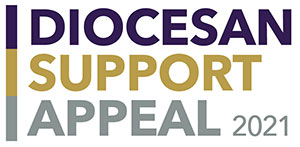LEXINGTON — In consultation with Preservation North Carolina, the Diocese of Charlotte is planning to sell the Dunbar School, a historic building in Lexington, for a future development that will honor its legacy of community service.
Built in 1951 and expanded several times over the years, the Dunbar School is an important part of Lexington’s history. The city’s only high school for African Americans before integration, it was named for Paul Lawrence Dunbar, an African American poet born in Dayton, Ohio, in 1872. He was the son of former slaves and classmate of Orville and Wilbur Wright. Though Dunbar only lived to be 33 years old, he was a prolific writer who was popular with black and white readers of his day, and his works continue to be celebrated today. Many schools across the nation reflect the Dunbar name.
The diocese purchased the vacant property in 2009 with the hope of preserving its history and continuing its legacy as a community asset by converting the building into affordable senior housing. However, diocesan officials said as they worked through development plans it became clear the diocese did not have the means to properly renovate the building, so the diocese leased it to community organizations over the next several years while alternative plans could be considered.
“Ultimately, the cost of maintaining the structure far exceeded the leasing income, so the diocese closed the building a few years ago and began a thoughtful search to find a community-minded buyer,” said Anthony Morlando, diocesan properties and risk management director. “Fortunately, we found just that: We have agreed to sell the 10-acre site at near cost to a development company that is pursuing plans for affordable senior housing like the diocese had originally envisioned and that will honor the historic nature of the property, which the diocese and the community value.”
The property is under contract and expected to close later this year. The developer, Shelter Investments Development Corp., has completed several similar renovation projects in the past, including the former Ashe Hospital in Jefferson, which earned the 2020 Award for Excellence in Historic Preservation from the U.S. Department of Housing and Urban Development and the Advisory Council on Historic Preservation.
— Catholic News Herald
Mental Health Awareness Month
CHARLOTTE — This year’s Mental Health Awareness Month message is “You Are Not Alone.”
For some, the pandemic has led to isolation and feelings of loneliness, anxiety and depression in many ways. This year’s Mental Health Awareness Month is focusing on the healing value of connecting in safe ways, prioritizing mental health and acknowledging that it’s OK to not be OK.
“Together, we can realize our shared vision of a nation where anyone affected by mental illness can get the appropriate support and quality of care to live healthy, fulfilling lives – a nation where no one feels alone in their struggle,” according to the National Alliance on Mental Illness.
Here in western North Carolina, Catholic Charities Diocese of Charlotte’s mental health counseling program is available to help.
The agency has shifted from in-person to “tele-counseling” sessions to provide access to counseling services during these uncertain times – no matter where in the diocese people live.
“Few of us have been immune from the increased anxiety and stresses related to this unprecedented time of living under COVID-19,” said Dr. Gerard Carter, Catholic Charities’ executive director and CEO. “One of the things I am particularly proud of has been the incredible ability of our professional staff to pivot services during the past year in providing services using telehealth.”
“Tele-counseling” is offered through an easy-to-use and secure, HIPAA-compliant platform. People use their computer, mobile phone or tablet to have a one-on-one, confidential video session with a counselor. The online sessions last about an hour and include the same quality and types of services as in-person counseling.
The service means more people across the diocese can access mental health counseling – not just if they live in Charlotte, Asheville or the Triad where Catholic Charities’ four counselors are based.
Counseling is available to individuals and couples, and bilingual counseling sessions are also available.
Services are provided on a sliding fee scale based on income. These fees and health insurance coverage, when possible, help cover program expenses.
— Kimberly Bender, Online reporter
Find out more
Get more information about “telehealth” counseling offered through Catholic Charities online at www.ccdoc.org (select “Counseling” from the Services menu), or call 828-255-0146 in Asheville, 704-370-3227 in Charlotte, or 336-714-3204 in Greensboro or Winston-Salem.
Your DSA contributions at work

Some Catholic Charities Diocese of Charlotte programs are funded in part by contributions from the annual Diocesan Support Appeal. Learn more about the DSA and how you can contribute at www.charlottediocese.org/dsa.


